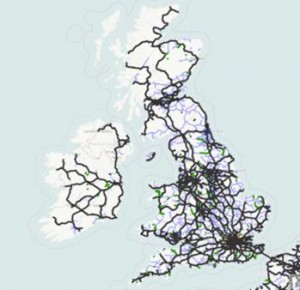Heathrow: Davies Commission
As much as we like Boris Johnson, just one look at any road/rail map of the UK shows that he is clearly wrong about Heathrow. The massing of infrastructure and economic activity to the west of London in terms of rail links, both to Central London and the rest of the UK, as well as road links with the M4 and M3 corridors, positions Heathrow perfectly as the location for a UK hub airport. That is why it is there. In 2018, Crossrail will link west with east – so surely it’s time for a Great British compromise?
HS2, where much current debate resides, will leverage economic benefits in ways and over timescales that cannot currently be predicted. Analysis of new infrastructure assumes a static economic position; whereas enhancing connectivity, as is clear from the demand for Heathrow, brings increasing economic gains. For the same reason, removing Heathrow from this natural location for UK connectivity will have impacts over timescales and of a severity that cannot yet be predicted. Heathrow therefore must remain as a hub.
Figure 1 – UK’s Rail Network
A 2012 report from RICS, Locational Investment, tells us that London is the most globally networked city in the world.[1] And interviews with business leaders tell us that West London is hugely more influential in that global economic networking than the east. In fact, this goes as far as to say that the area east of the Docklands is negligible to London’s global position. So clearly it would be beneficial to try to rebalance some connectivity to East London.
It is the agglomeration of infrastructure around Heathrow and West London which currently makes Heathrow so attractive despite being the most expensive airport in the world.[2] A cost that needs to remain high if it is to reflect the costs and land values within which Heathrow operates.
Of course though, there is a clear land value and cost benefit of absorbing airport use, within a national strategy, to the east of London. The lack of progress in growing economic activity that will genuinely extend London’s global city to the east requires the missing ingredient: air travel.
The only alternative to this balanced UK air strategy that aims to secure more economic trade for the UK is to take an alternate route that can be equally well supported on an entirely different basis: an economic staycation – no more flights and an increasing premium attached to powered flight.
[1] Pain, Kathy; 2012; ‘Locational Investment – Where to target investment for maximum economic returns’, RICS, http://www.rics.org/Global/Locational_Investment_140512_dwl_aj.pdf
[2] In terms of the various service charges.
Tags: Airport, Boris, Boris Johnson, Conservative, Conservative Party, Government, Heathrow, High Speed 2, HS2, London, Mayor, Politicians, Politics, RICS, Tory, Transport, UK

